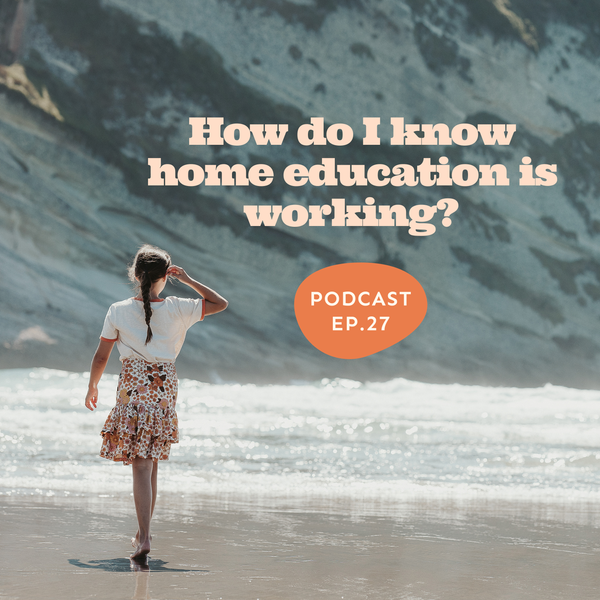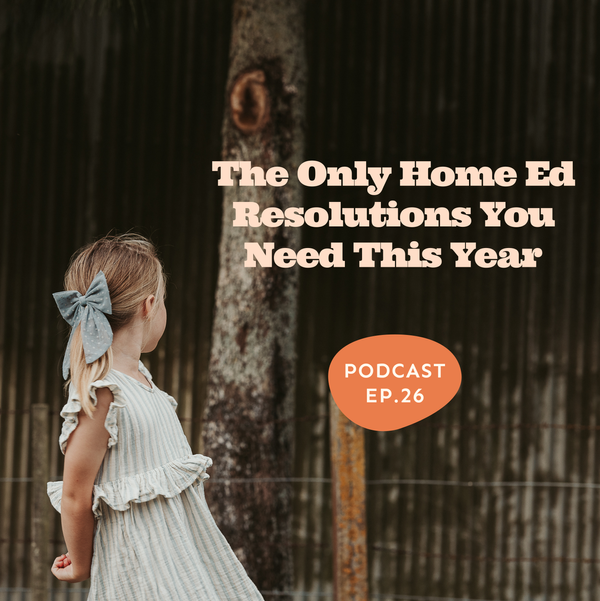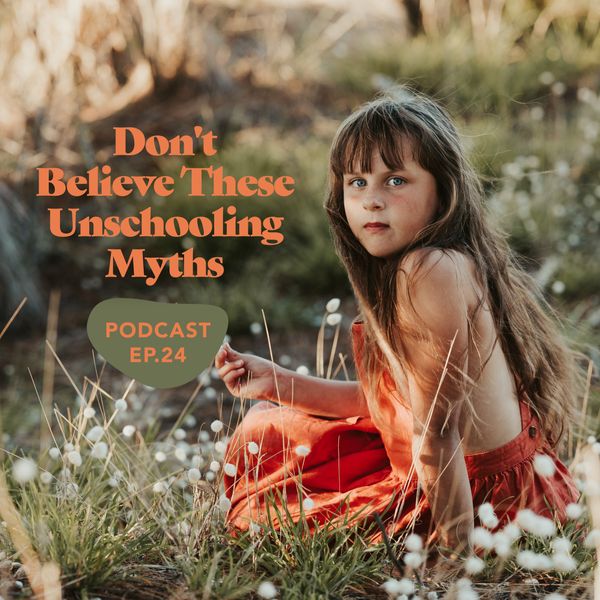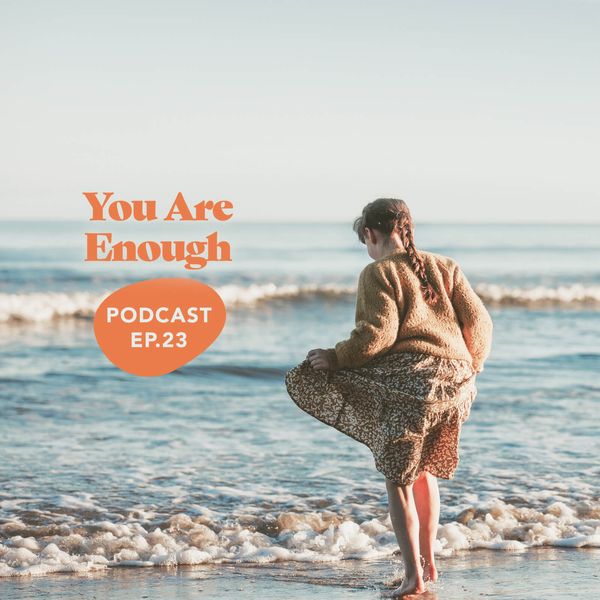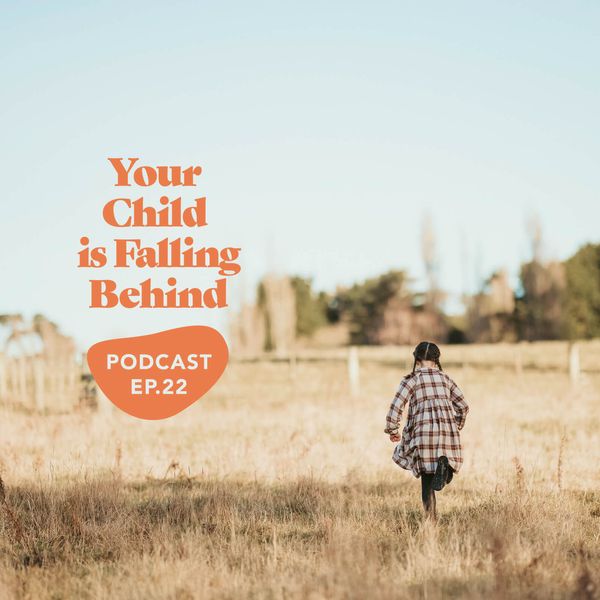For this episode I want to dig into two of the biggest misconceptions about home education that I, personally, have experienced over the years that I’ve been an unschooling dad.
Despite it being a rapidly growing form of education, especially over the past year or two, homeschooling (or unschooling, hack schooling, home education, world schooling – whatever your personal flavour or term happens to be) – is still a widely misunderstood world.
The reasons for choosing to opt out of school and the approaches home educating families take have all broadened hugely over the years. How it’s all viewed by the wider population, hasn’t really kept pace with that. Common perception is as narrow as it was 50 years ago.
At best, this is causing awkward conversations in the playground.
At worst, it’s holding the world back from advancing how our children experience life (and that goes for their adulthood when they get there, too).
Show Notes
A systematic review of the empirical research on selected aspects of homeschooling as a school choice: https://www.tandfonline.com/doi/full/10.1080/15582159.2017.1395638
Can Homeschoolers Do Well In College? https://www.cbsnews.com/news/can-homeschoolers-do-well-in-college/
Australian home educating alumni study: https://home-ed.vic.edu.au/wp-content/uploads/2019/03/Alumni-Report-National.pdf
Homeschooling and the question of socialization: https://www.jstor.org/stable/1493091?seq=1
Complete Transcript
Hello again, I hope you’re well, wherever you’re tuning in from today.
It’s late at night here in New Zealand, while I record this, and I have rain hitting the roof above me, and a fire crackling behind me, so let’s see if my microphone can actually pick up the cosyness I’m getting to experience while I’m sitting here.
For this episode I want to dig into two of the biggest misconceptions about home education that I, personally, have experienced over the years that I’ve been an unschooling dad.
Despite it being a rapidly growing form of education, especially over the past year or two, homeschooling (or unschooling, hack schooling, home education, world schooling – whatever your personal flavour or term happens to be) – is still a widely misunderstood world.
The reasons for choosing to opt out of school and the approaches home educating families take have all broadened hugely over the years. How it’s all viewed by the wider population, hasn’t really kept pace with that. Common perception is as narrow as it was 50 years ago.
At best, this is causing awkward conversations in the playground.
At worst, it’s holding the world back from advancing how our children experience life (and that goes for their adulthood when they get there, too).
I’ve had many of those awkward conversations over the past few years, and through them I’ve noticed that people get stuck on two main things. They get stuck on a lot of things, actually…but I think the two I’m going to talk about today are the biggest.
Perhaps they were true at one select point in history. Perhaps they’re still true for a small segment of homeschoolers. But for the vast majority of home educating families in 2021 they are nothing more than misguided, misinformed, outdated opinions.
It’s time those opinions were realigned.
MUSIC
Myth One: Homeschooled children won’t get the education they need for good jobs and careers as adults.
It makes sense on the surface, right? The idea of young Jimmy sitting at his kitchen table while his mum tries to muddle through teaching him calculus (which she failed in school) doesn’t fill any of us with much hope for his future. He’ll inevitably fall behind where he should be in most subjects and have little chance of ever catching up. And you can forget about the idea of college or university.
Sorry Jimmy, we’re going to make you completely unemployable.
Except that lone figure sitting at the dining table while their parent tries to impart whatever knowledge they have simply isn’t how home education works. For most, the concept of the classroom is flipped. The parent doesn’t deliver knowledge, they help facilitate the discovery of it – and in today’s world we can access more raw information than we could possibly imagine. The child drives their own learning journey, drawing from many, many different resources around them – both digital and from the real world. They are not told what to do and when to do it. The how is not prescribed. What they learn about is often up to them.
And so the motivation to learn comes from an internal place, and that will always trump external drivers like rewards and punishments.
Home educated children are learning, don’t you worry about that, and they’re going deep with it. I’ll actually dedicate a whole podcast episode to this very thing at some point – the power of internally driven learning – so I won’t go too deep into that right now. But I’m sure we can all agree, before we move on, that – unlike 50 years ago – we no longer have to rely on a classroom and a teacher as our primary source of information. It is unbelievably accessible.
But even assuming that home educated children can learn whatever they could have in school, we still have our main sticking point unsolved – because homeschooled kids can’t just rock up to college or university and enrol like their schooled peers, right? So then what happens?
There are two points I’d like to underline here.
The first one: homeschooled children can enrol at most colleges and universities. And we need to get this clear right here, right now – choosing to homeschool does not close college or university doors. It’ll probably take more work to prepare their application, sure, but I’m yet to meet a homeschooler that’s afraid of a little hard work for the right outcome. Harvard’s a great example – they don’t evaluate homeschooled applications any differently to the ones coming out of public school. It’s a level playing field – those high school diplomas are far from make-or-break. There’s only one real key to being selected by a college or university – by being the kind of person they want, and showing them that you are.
It’s really important to note that at a tertiary level – that university, college level – learning switches quite drastically towards being self-led. It’s quite a change from the school years. And often, a home educated child has spent more time building that self-directed learning muscle.
It’s for that reason, I think, that a lot of top colleges and universities actively recruiting homeschoolers.
There’s even some research out there that’s quite interesting. One study shows homeschoolers outperforming their schooled peers in entrance exams, completing their first year of study with higher average marks, and going on to graduate at a higher rate.
Another study, out of Australia, showed a higher percentage of homeschoolers were going on to tertiary study than the rest of the population.
I’ll link both of those pieces of research in the show notes, if you want to dig deeper.
Now, obviously, the research so far is light. We need more of it. But so far, it’s not painting a picture of underperformance. These early studies are pointing to strong academic results achieved by motivated young adults who know how to learn and want to be there.
Before I wrap this section up, I want to share a few short recordings from grown homeschoolers and unschoolers who have made the choice to pursue higher education. Going on to college or university is not the road we all have to take, of course – and I’ll talk more about that after we hear these stories, because it’s super important – but hopefully hearing these shows you that living a life without school does not close higher education or technical qualification doors.
STORIES
Ahhh, these stories are amazing – and the thing I love the most is that they’re all different. And that’s really the point – there is no one way, globally, to do this stuff. It’s different based on where you live, but also on who you are and the journey you individually want to take. The school path is completely defined and laid out for you. If you want to go on to higher education, you don’t have to think about it – you just have to do what you’re told, and pass the tests you’re asked to sit.
But when you choose a path without school, it’s up to you to take the wheel. Yes, that’s a bit harder. But gosh it’s interesting. And the key thing:
It’s intentional.
MUSIC
Now, with all that said – and those amazing stories out there – I want to talk about my second point in relation to the career thing:
That a degree, a qualification, that revered piece of paper, is not the free career ticket it used to be. Yes, you will need to train to become a teacher or lawyer. No, you will not be able to walk into an operating room and perform surgery without the necessary training and qualifications first. But the list of professions that require – as in, really require – a degree is shortening.
I can speak from significant personal experience here. I worked for a software company for almost eight years, in a senior role. I was hired with no qualifications – just, the right kind of experience and attitude. I joined that company when it was a team of five, and by the time I left it was a team of 125 and growing rapidly. That company has a lot of people doing a lot of cool things – developers, designers, product managers, marketers and writers, social media managers, analysts, testers, finance people, support people, and salespeople. It’s a hugely successful company with a fantastic culture, exactly the kind of place you’d want to work if you were into any of those areas. And the coolest thing is…I could pull out a star performer from any one of its teams, in any one of those roles, who was hired without the ‘right’ qualification. Without, in many cases, any formal training at all in the position they applied for. What they would have had were skills they’d developed on their own steam. Real-world experience. Impressive personal portfolios of work they’d poured energy into. The right blend of confidence and humility. The ability to listen and learn. Passion and enthusiasm.
I was a hiring manager for most of the 8 years I spent in that business, and I can tell you with complete honesty that the very last thing I ever looked at when an application hit my desk was the formal qualification section. It’s just…not as important in that kind of business as a lot of other things are.
So, there we are. We’ve heard, first-hand, that if a homeschooler needs a degree they can put in the work, and follow the steps they need to go and get it – and from the research so far, they’ll be just as successful in doing so (and possibly even more) as anyone coming out of the school system. But, as we’ve also talked about, maybe, just maybe, they’ll decide they don’t even need that piece of paper at all.
Either way, it is a black and white fact that choosing to homeschool will categorically not hurt your future career prospects.
(hey, it might even help)
MUSIC
Myth Two: Homeschooling my child will stunt their social development
This is probably the widest held perception of home education, and I think it starts with putting too much emphasis on the word ‘home’.
Sure, a lot of homeschooling families spend a lot of time at home. It’s…their home. That’s what it’s for. But most homeschooling families also spend a lot of time outside their home. They aren’t locked inside the four walls of their house day in and day out. They can choose to leave.
And when they do, they’re not just shifting to another room in another building like a classroom – they’re going to libraries, skate parks, swimming pools, markets, galleries, beaches, playgrounds and museums. They’re at gymnastic halls, drama schools, karate dojos and dance classes.
And the key thing is that they’re interacting with interesting people in all those places – librarians, gallery curators, museum staff, surfers, skaters, market stall owners, drama students, park rangers…
There is actually research (again, I’ll link to this in the show notes) that suggests home educated children are more connected to the community around them than others. That they are more active participants in their local neighbourhoods in various ways, connecting with people of different ages and from different walks of life more often. That they take up more social and extracurricular activities each week, on average, than school children. And, really, we probably don’t need research to tell us that. It’s…kind of obvious.
Could anything possibly fit the definition of socialisation better than all that?
SHORT MUSIC?
I also think it’s very important to look at this from a different angle. If we’re concerned about a home educated child’s social development, are we putting the same critical lens on the idea of school being the primary and best place for that development?
Have we sat and observed the interactions and value exchanges that happen in classrooms and playgrounds, and confidently decided they match the way we would like our child to develop socially?
Are we ignoring the many stories of bullying, teenage mental health struggles, and therapy adults go through to help them unpack and process all that?
Are we just…hoping it’ll be different for our children than what the statistics say it probably will be?
Let me present, in a very short, clear, concise way, two models of social development.
Model One:
Children are sorted into small groups, their age and home address the primary selection criteria. Outside of a few exceptions, the children have no say in the group they are chosen for. The group is required to gather in the same room, or small selection of rooms, at the same time every weekday.
The group is allowed outside the room they’re in, but only at set times. During those times they are encouraged to expend as much physical energy as possible to ensure focus for their next inside session, and are also allowed to eat.
Back in the room the group switch between independent and collaborative work, but they cannot choose what that work is or how they express their understanding of it. They are measured against a set of standards they played no part in defining, receiving marks that are benchmarked – often publicly – against the others.
A small group of adults are spread throughout the rooms, responsible for the meeting of standards and the following of schedules and rules (whether they agree with them or not). If a child can’t meet the standards over a period of time, or breaks the rules of the group (for example, chooses to continue with outside time when the schedule states it is inside time), behavioural correction is applied.
The other children in the group, generally, know when and why this has occurred, and to who.
The group will operate under these conditions for at least six hours a day, for almost the entirety of their formative years.
Model Two:
Children spend their days between their home, their community, and the world around them. They interact with people of different ages and varied backgrounds. They choose who they connect with more closely, and why, as they move through life.
They decide what is meaningful to them, and embrace how they most naturally express that to others.
They are not benchmarked. They are not compared.
Ok, now pause. Are we sure we’re ok holding that first model up as the gold standard?
I sometimes wonder if the socialisation argument is actually just a polite way of saying that homeschooled children are a bit weird. If that’s the case, I would wholeheartedly agree (I’d prefer the word ‘different’, but let’s not split hairs).
Think about it – how could someone who has experienced an entirely different version of life to you not seem different? It would be…weird…to expect the same result.
Also, I challenge anyone who is afraid of differences in people to reflect deeply on that.
Regardless of what the underlying social point is, the idea of promoting 13 years of age-segmented classroom time that’s routinely punctured by manic releases of energy in small play areas as being the best form of social development for a child is absurd.
And the idea that being different is a bad thing…well, that’s just dangerous.
MUSIC
While there are of course exceptions to any rule, it’s pretty clear that these perceptions of home education are tired and outdated. They have not kept pace with a global home education movement that has rapidly grown and developed, and continues to do so.
If you believe either of these myths I’m not expecting you to suddenly drop them and become a raving advocate for home education. But what I would ask is that you step back and look at all this objectively before you next throw one of these lines into a conversation. It’s easy to reject the unknown by falling back on old arguments, but if you’re going to continue holding a position – especially if you hold it firmly – you should at least make sure it’s still a strong one.
And if you’re a home educating parent, and you’ve ever carried doubts in either of these areas – because I certainly have – I hope this conversation today has calmed those feelings. I hope you feel reassured, and confident, and excited for the future of your children.
If it has, then…this podcast is doing everything I hoped it would.
Thank you, again, for being here with me this week, and please keep leaving those amazing reviews if this podcast is touching your life.
Ok, I’ll see you back here soon.
Bye for now.



